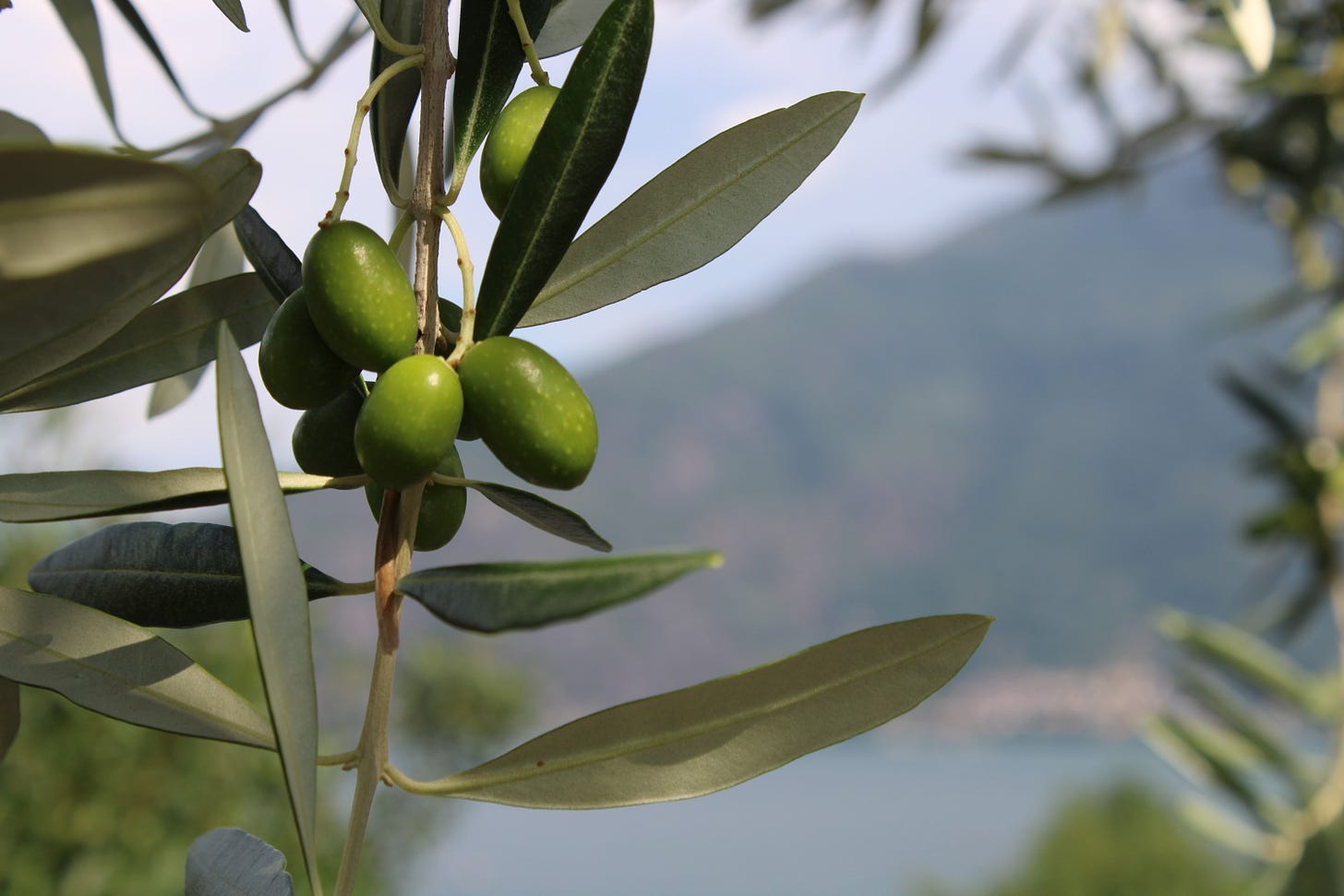The Roundup 5.6.23
Reflections on Robert Capon, Protestant Theology of the Body Conference Announcement, Steven's Summer Send Off & More
Friends,
When we think of what defines us as humans—and, as Christians, what defines us as creatures made in the image of God—many today tend to think of less tangible qualities like rationality, consciousness, self-awareness, dignity, creativity, or spirituality. This kind of thinking is made easier by the digital age, where smartphones, social media, and internet usage foreground these qualities over and against our embodied existence.
These things may very well be—and indeed are—part of what it means to be human.
But as Robert Capon in his book, Food for Thought (a kind of sequel to his Supper of the Lamb), reminds us: even the most necessary and embodied practice of preparing food shows forth the image of God. Capon writes, “Man… is the animal who cooks his food.” What makes us image bearers need not be discovered only within our arguments, in our algorithms, or in our literature. It is, quite literally, right under our nose. “Man, when he sprinkles his oregano, is doing in his uniquely human way what the stars do in their own”.
A dog may not reason with us, to be sure; but we have only to look at what it eats to know it is not human. “Dogs like taste well enough; but what man has done with garlic!”
As we season our food with oregano, cumin, or whatever else it is we use, remember, what makes us image bearers is not just our intellect or creativity, but our embodied lives. Like God (cf. Lev 2:13), we prefer our food seasoned and salted. How divine!
On behalf of the Perishable Goods Team,
Jared
Welcome to the Roundup, a periodical collection of reflections, reviews, and recommendations from your friends at Perishable Goods.
Below is our monthly cornucopia of things we’ve been reading, listening to, and contemplating. If you enjoy reading these as much as we enjoy writing them, consider upgrading to a paid subscription to support our work.
Articles
Clare Coffey in The New Atlantis on “The Joy of Losing Your Phone.”
In this eye-opening piece, Coffey begins by telling how she left her phone in a taxi cab. Immediately after realizing what happened, she feels a sense of panic as she realizes what inconveniences she must now live with during her time in Mexico. But not too long after, she begins to feel more freedom—indeed—joy, from not having the conveniences afforded her by her phone. Instead of frantically tracking down her phone, she decides to sit “outside on a bench listening to a few bands…” Coffey asks us to consider how independent we really are with our phones. Have we stopped to consider how our relationships and communication styles have been altered by phones—let alone smartphones?
Coffey’s cutting article ends with a sobering assertion: “A phone is a synecdoche and epitome of all the physical and social technologies that free us from the need to be quite so polytropic…” Concluding the story of her “phoneless evening” that brings to mind something out of a Hemingway novel, Coffey writes, “Perhaps I will lose my phone again.”
Jeffrey Bilbro in Front Porch Republic on “Learning to Distinguish Between Demonic and Redemptive Technologies.”
This piece was originally published in 2018, but provides a helpful way to consider how we distinguish between certain technologies. However we define “technologies,” it is certainly the case that not all are good and redemptive. Bilbro challenges us, much like the likes of Paul Kingsnorth, not to accept technology simply because it is there, but to weigh it and consider its effects, much like Amish do in their communities. Bilbro’s article here focuses on agricultural methods, concluding that “the question isn’t whether or not we will use technology, but which technologies are appropriate for a fallen people who have received the divine gift of land.” Finally, he warns that “we should be wary of demonic technologies that seek to control life, promising us freedom from the limits that death imposes.”
Reviews
The Things of Earth by Joe Rigney
I started re-reading this book a few weeks ago after talking with a friend about what it would look like to develop a “theology of fun.” What does God think about our fun? What’s His stance on espresso, and ice cream, and disc golf, and trips to Ireland, and Friday movie nights, and home decorating, and cycling races? Are these luxuries that distract from the kingdom of God, or can they glorify God? Are we squandering our time and money if we spend them on any of these things?
To put it in the context of some familiar hymns, do the things of earth “grow strangely dim in the light of His glory and grace” or does “He shine in all that’s fair”? This is the question that Joe Rigney tackles in The Things of Earth. If you’re like me, then you’ve struggled to figure out whether or not the things of earth have a place in a life lived for the Gospel. Rigney’s book is for those who feel conflicted about their earthly possessions and who want to learn how to be good stewards of God’s gifts.
—Lara
Feminism Against Progress by Mary Harrington
I recently received a copy of Mary Harrington’s new book. With an emphasis on making a distinction between the “feminism of freedom” and a “feminism of care,” Harrington begins with a short autobiography of her life. Feminism Against Progress, as the book cover says, explains how our digital age sees technology as a means of liberation “from natural limits and embodied sex differences.” I look forward to giving a full book review in the coming weeks!
—Steven
Recommendations
Zach Winters
In the piece I published last week, I included the opening lines from a Zach Winters song entitled “Skin.” It’s a song I’ve been returning to a lot recently, and one which I think gets at the tension of living in a body that was created good yet needs to be redeemed: “Skin is a ghost machine / A loved and a hated thing,” he sings. Even under the curse of sin, our bodies bring us together and “preach” to us. They “make family / And that’s a good thing, baby.”
Zach’s lyrics are a reliable punch in the gut. Like any good poet, he sees glory revealed in the mundane beauty of the world (monarch chrysalises, fruit-bearing trees, evening light, companionship) and in suffering (infertility, broken bones, loneliness). His music holds the goodness and fallenness of creation at once—something we aim for here at Perishable Goods.
Here are some songs to get you started: “Monarch,” “The Grass after Winter,” “Skin”
—Lara
Events & Updates
Steven’s Summer Send Off
I’ve been in Washington, D.C. for the better part of five months, but next week, I am saying farewell to return to the family farm in Minnesota. There, I am the assistant manager at the farm my grandfather started in the 1950s. We’re a small-scale, diversified farm—meaning we grow a variety of crops: strawberries, tomatoes, cucumbers, kale, lettuce, pumpkins, and more. In the fall, we also host an autumn festival, with a corn maze, live music, and more accoutrements of Americana. In the summer months, I hope to offer some reflections on the work out in the field. A part of the vision for the farm, in the long-term, is to play host for conferences and gatherings for organizations committed to the importance of place, rootedness, and the agrarian lifestyle—there has also been musings of starting a sort of fellowship down-the-road that aims to provide people a haven to live in Christian community, read the great works of history, literature, and theology, while also placing importance on cultivating the land.
Be sure to check out Carters’ Farm Newsletter Substack. Carters’ Farm is a family farm, and one day, the vision is to have it also be a place where conferences can be hosted that focus on many of the ideas that readers of Perishables Goods care about: community, rootedness, place, natural limits, and good work. Please consider subscribing to help their work!
Sneak Peek:
This week, Jared was at work on an exciting new project. While he’s not at liberty to really share anything about the project, he can at least share pictures. More info coming soon!
Announcing: Protestant Theology of the Body Conference
Mark your calendars: There will be a Protestant Theology of the Body conference in DC this fall on Saturday, September 9, 2023. Speakers so far include: Mark Garcia, Ephraim Radner, and Matthew Lee Anderson. We’ll share the registration information in the next week or so! Please let us know if you’re in town. The Perishable Goods team would love to see or meet you in person!
Poetry
Love bade me welcome. Yet my soul drew back
Guilty of dust and sin.
But quick-eyed Love, observing me grow slack
From my first entrance in,
Drew nearer to me, sweetly questioning,
If I lacked any thing.
A guest, I answered, worthy to be here:
Love said, You shall be he.
I the unkind, ungrateful? Ah my dear,
I cannot look on thee.
Love took my hand, and smiling did reply,
Who made the eyes but I?
Truth Lord, but I have marred them: let my shame
Go where it doth deserve.
And know you not, says Love, who bore the blame?
My dear, then I will serve.
You must sit down, says Love, and taste my meat:
So I did sit and eat.






